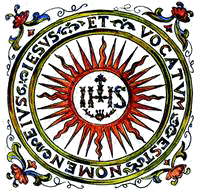See if you can after you read this brief story from the Washington Post
The End of Europe
By Robert J. Samuelson
Europe as we know it is slowly going out of business. Since French and Dutch voters rejected the proposed constitution of the European Union, we've heard countless theories as to why: the unreality of trying to forge 25 E.U. countries into a United States of Europe; fear of ceding excessive power to Brussels, the E.U. capital; and an irrational backlash against globalization. Whatever their truth, these theories miss a larger reality: Unless Europe reverses two trends -- low birthrates and meager economic growth -- it faces a bleak future of rising domestic discontent and falling global power. Actually, that future has already arrived ...
... It's hard to be a great power if your population is shriveling. Europe's birthrates have dropped well below the replacement rate of 2.1 children for each woman of childbearing age. For Western Europe as a whole, the rate is 1.5. It's 1.4 in Germany and 1.3 in Italy. In a century -- if these rates continue -- there won't be many Germans in Germany or Italians in Italy. Even assuming some increase in birthrates and continued immigration, Western Europe's population grows dramatically grayer, projects the U.S. Census Bureau. Now about one-sixth of the population is 65 and older. By 2030 that would be one-fourth, and by 2050 almost one-third ...
... A few countries (Britain, Ireland, the Netherlands) have acted, and there are differences between Eastern and Western Europe. But in general Europe is immobilized by its problems. This is the classic dilemma of democracy: Too many people benefit from the status quo to change it; but the status quo isn't sustainable. Even modest efforts in France and Germany to curb social benefits have triggered backlashes. Many Europeans -- maybe most -- live in a state of delusion. Believing things should continue as before, they see almost any change as menacing. In reality, the new E.U. constitution wasn't radical; neither adoption nor rejection would much alter everyday life. But it symbolized change and thereby became a lightning rod for many sources of discontent (over immigration in Holland, poor economic growth in France).
All this is bad for Europe -- and the United States. A weak European economy is one reason that the world economy is shaky and so dependent on American growth. Preoccupied with divisions at home, Europe is history's has-been. It isn't a strong American ally, not simply because it disagrees with some U.S. policies but also because it doesn't want to make the commitments required of a strong ally. Unwilling to address their genuine problems, Europeans become more reflexively critical of America. This gives the impression that they're active on the world stage, even as they're quietly acquiescing in their own decline.
So what's our one little mystery word?
C-O-N-T-R-A-C-E-P-T-I-O-N.
Obvious, eh.
Ohhhh, us stupid Catholics with our "Divorcing sex from its most profound purpose - creating new life - is damaging for individuals and bad for civilization!" schluck!
We should really get with the times.
/Sarcasm, in case I haven't laid it on thick enough.
Hat tip to AMDG.




















Yes! Maggie found the "must read" online article of the day! :throws confetti:
ReplyDeleteCompletely agree with you on that. I read somewhere a few weeks back that if it wasn't for immigration Europe ALREADY would be "under production" as it were... And they're still supposed to be freakily soon. Creating their own black death here, aren't they?
Bitchy of them to blame us instead of noting how f*d up they are, though. :scowl:
(Days pass)
ReplyDeleteWell, I thought this was a good post, anyways... Obviously not everyone has as good of taste as we do. ;) ;)